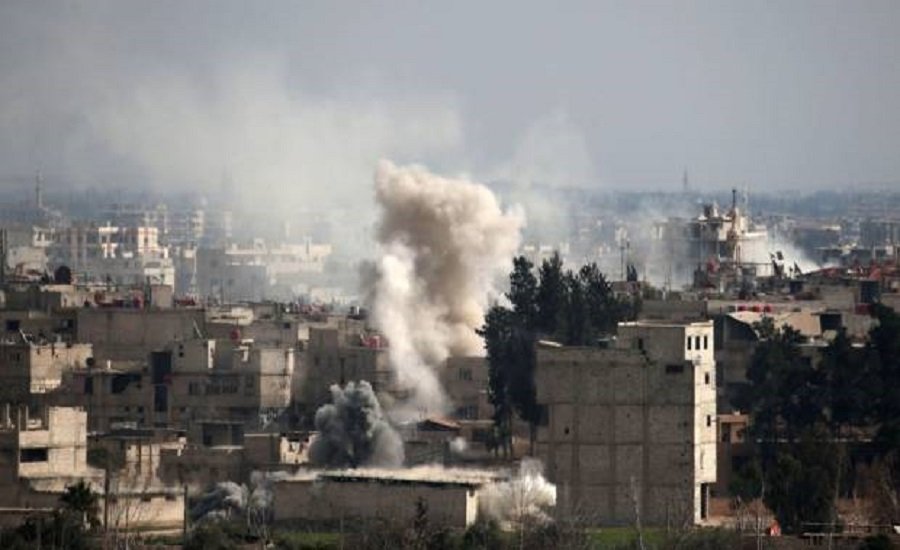
United Nations decries assault where hospitals have been hit and warns that the bombings may constitute war crimes
BEIRUT (Reuters) — Residents of Syria’s eastern Ghouta said they were “waiting their turn to die” early on Wednesday, after more pro-government rockets and barrel bombs fell on the besieged rebel enclave.
Five died and over 200 were injured early on Wednesday in the area, hammered by one of the heaviest bombardments in seven years of war that has killed at least 250 people in 48 hours, a war monitor said.
They fear the terror of the bombardment will bring her into labour early, he said.
“Nearly all people living here live in shelters now. There are five or six families in one home. There is no food, no markets,” he said.
The United Nations has decried the assault on eastern Ghouta, where hospitals and other civilian infrastructure have been hit, as unacceptable, warning that the bombings may constitute war crimes.
The Syrian government and its ally Russia, which has backed Al Assad with air power since 2015, say they do not target civilians. They also deny using the inaccurate explosive barrel bombs dropped from helicopters whose use has been condemned by the UN.

Conditions in eastern Ghouta, besieged since 2013, had increasingly alarmed aid agencies even before the latest assault, as shortages of food, medicine and other basic necessities caused suffering and illness.
Rebels have also been firing mortars on the districts of Damascus near eastern Ghouta, wounding two people on Wednesday, state media reported.
Rebel mortars killed at least six people on Tuesday.
“Today, residential areas, Damascus hotels, as well as Russia’s Centre for Syrian Reconciliation, received massive bombardment by illegal armed groups from Eastern Ghouta,” Russia’s Defence Ministry said late on Tuesday.
Eastern Ghouta is one of the “de-escalation zones” agreed by Russia, Iran and Turkey as part of their diplomatic efforts.
But a former Al Qaida affiliate is not included in the truces and it has a small presence there.

